Oral History no.2
“Building Memories: Jack Green’s Life in Ocean Grove”
Listen to his story.
Jack Green, a fifth-generation Ocean Grove resident, grew up spending summers in the town’s tent colony, where his grandmother organized community events and embodied the strong, faith-centered spirit of the Holiness Movement. His family’s ties date back to the 1800s, including his grandfather, Methodist minister Ray Neff, who served as vice president of the Camp Meeting Association. In 1993, Jack unexpectedly bought and restored the historic Ocean Plaza Hotel—once the home of Holiness Movement leader John Inskip—into a thriving inn that hosted notable religious figures and musicians. A builder by trade, he also renovated the Great Auditorium, Youth Temple, Grove Hall, and many homes, winning awards for historic preservation. Ocean Grove gave him a supportive community despite childhood struggles with dyslexia, and his family remained deeply involved, with multiple generations holding tents until recently. Jack fondly recalls organizing beach activities, playing volleyball, and enjoying Asbury Park’s amusements. Today, he sees Ocean Grove as a uniquely designed, walkable community whose tight-knit charm continues to attract people.

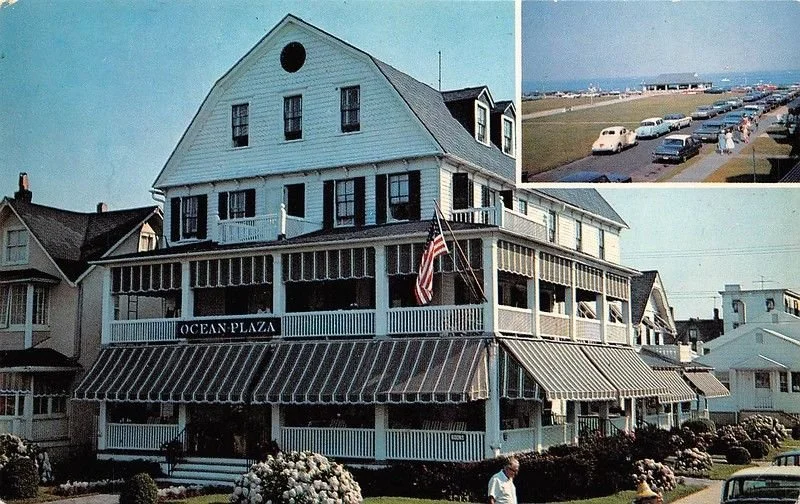
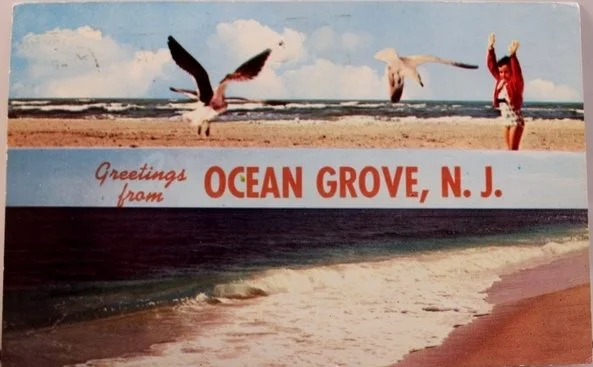
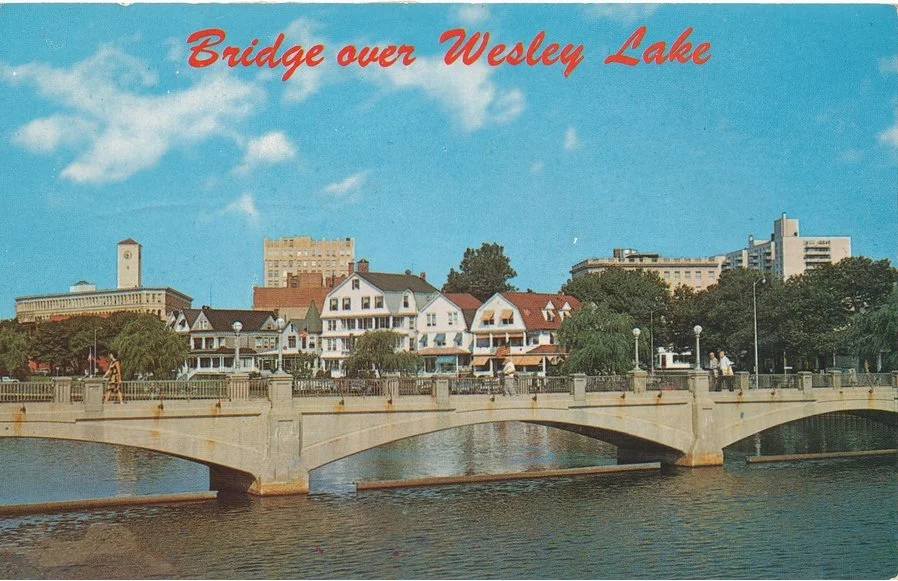

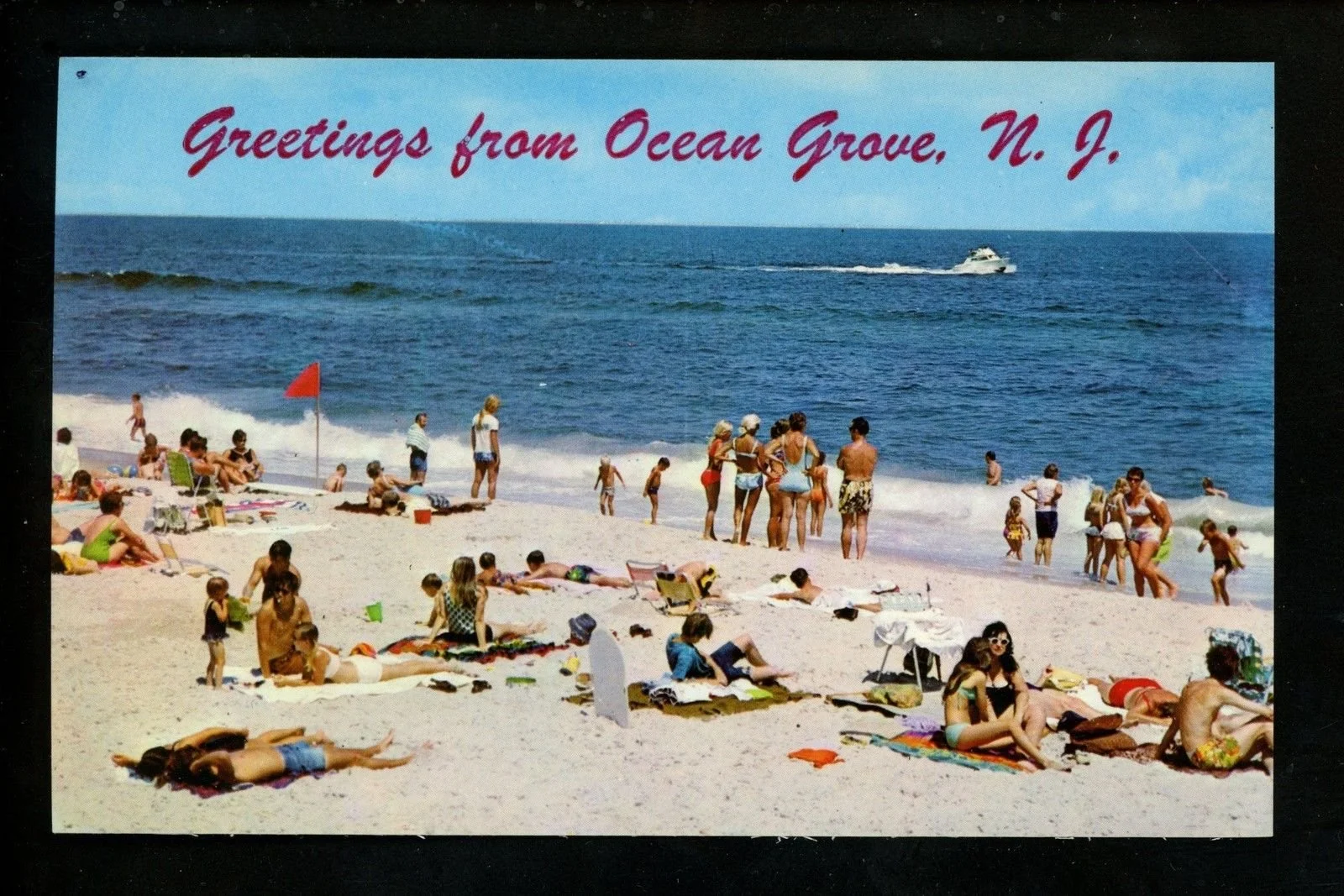

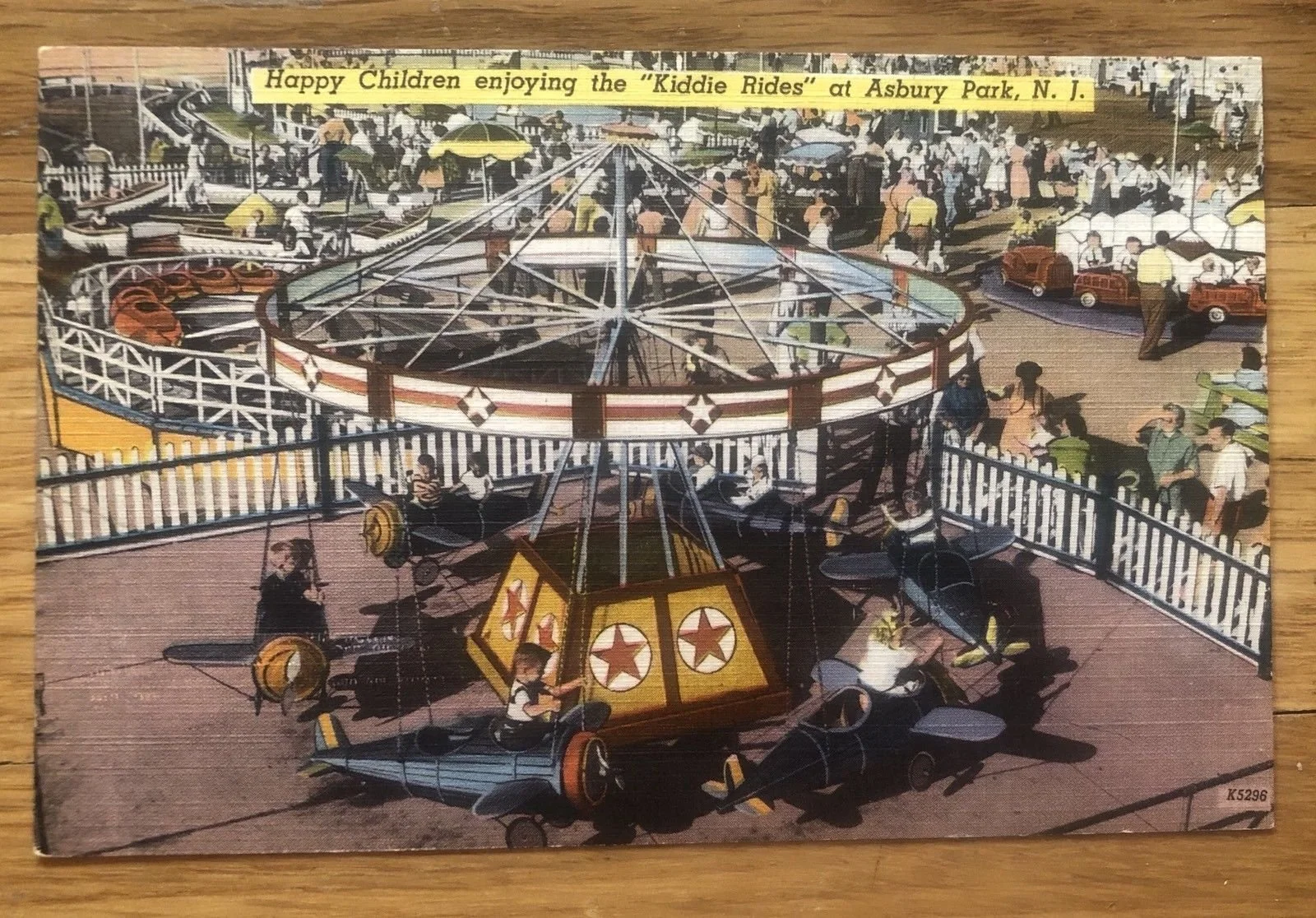

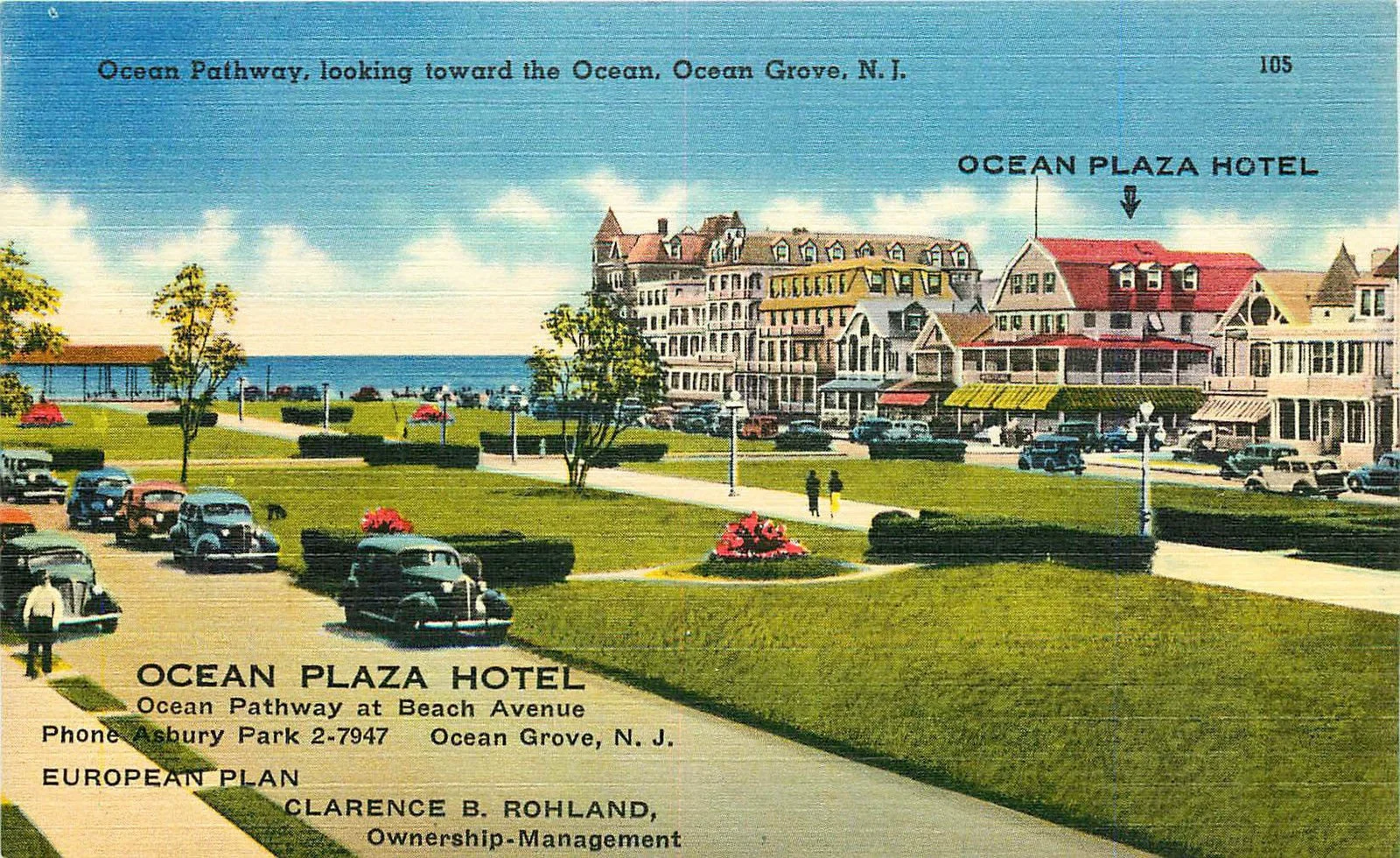


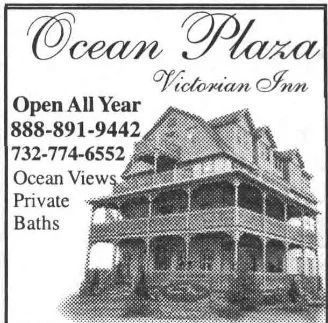
Transcript:
Melinda Allen-Grote: Today is July 31st, 2024. I'm Melinda Alan Groat, and I'm meeting with Mr. Jack Green in his home in Ocean Grove. We're here collecting his memories of being in Ocean Grove for the Historical Society's, Ocean Grove Oral History Project. So thank you so much for agreeing to participate in this.
Jack Green: Okay.
Melinda Allen-Grote: Tell me, Jack, a little bit about your history here in Ocean Grove.
Jack Green: So I grew up in the tent community as a summer person. My family, I think we're five generations in Ocean Grove. Wow.
Melinda: Going back half.
Jack Green:
We would have been back into the 1800s. We were my father's grandparents.
Melinda: So your great-grandparents?
Jack: Yes.
Melinda: Okay.
Jack: And Then we have my son and my grandson. Both sides of my family came here. The Green side, which no one would understand, actually had roots here longer, but they weren't as involved in the camp meeting or anything. My mother's side, my grandfather was a Methodist Minister.
Melinda: What was his name?
Jack: Ray Neff. And he became Vice President. They wanted him to be President, and he decided he was district Superintendent in New Jersey. He had too much pressure with that. So he stayed as Vice President. And that's when they brought in the fellow that came in as President, and then they had the riots in Asbury. So it was a wild time. But the first time I was here was when I was three weeks old. And I was born in July.
Melinda: What year was that?
Jack: 1953. And so they came down, stayed in my grand...well ee were in my grandparents' tent, and my folks also had tents. So a lot of my early memories were as a kid coming here. My grandmother had organized a lot of things in the tent colony. She would do a Labor Day party, she would do a Fourth of July party, and there'd be this big picnic in front of the tents. She was one of those just happy-go-lucky, but a real kind of... Ocean Grove started by the Holiness moment. She would be very much one of those strong women from the Holiness Movement that were dedicated, very, very focused on her religious life, but... But she enjoyed herself, too.
Melinda: Can you talk a little bit about the Holiness Movement?
Jack: The Holiness Movement was a... Well, Ocean Grove was created around the fact that after the Civil War, they wanted to have these campsites to help the country heal. The Holiest Movement was a religious movement. They felt somewhat responsible for for parts of the Civil War because they had fought so hard to end slavery. One of the exciting things in our life was that one time we were walking from our tent down to there. My wife says, We're getting older now. We're like 39. Our kids were like one year away from being out of school. Val and I got married very young. We're 19. She said, I want to go in the inn business. I said, Wow, you really want to go inn the in business? I want to go in the inn business. We're going down the pathway, and there was a sign on the Ocean Plaza. The Ocean Plaza had been foreclosed and was for sale. I made an offer back in '93 to buy this thing as a foreclosed property from Manasquan, and I offered them $100,000, but it was in pretty bad disrepair. They came back and said, That's too low with everything. The big Weichert sign goes up. It's for sale. We're waiting. I felt like I dodged a bullet because the last thing I wanted to do is go in the inn business. And all of a sudden, the beginning of October, I get a call from the bank, and he says, can you sweeten your offer a little bit? We really don't want to own this through the winter. I said, I'll tell you what, I'll give you $125,000, but you got to give me $100,000 in a mortgage, half a % of your prime. They said, let me go back and talk to our team. And the next day, he called me and says, you got the hotel. So now I'm like, oh, my God. So I get my father and we walk through. And I said, I'm budgeting like $500- $600,000 to clean this up. Now, mine is $93,000. And my father says, I think you better add a little bit more than that. Well, $950,000 later, we finished this hotel, and we found parts and everything, so we replicated it back to about 1889.
Melinda: When was it built?
Jack: The original cottage was built in, I think it was 1870. It was a two-story cottage. Then it It was the home of John Inskip, who was President of the Holiness Movement. That's how I always get it into this. They thought that they could bring on the second coming by creating Ocean Grove. That's where we're in the new Jerusalem and the city that comes down from the heavens and all this. But when all that didn't happen, they set out to start the mission movement around the globe, and they started 22 other Ocean Groves all in different areas. In fact, when we had the end, the Ocean Grove Australia came and visit us. We went from there. And so he had come down with some disease when he was finding something in India.
Melinda: Mr. Inskip?
Jack: Mr. Inskip. And came back here. He was sick and sat around for a couple of nine months or so. And then he died right there. And they had a service for him. And he had been the Chief Chaplain of the Northern Forces during the Civil War.
Melinda: Oh, wow.
Jack: So they get a train. He was with the Brooklyn 14th. And on the Brooklyn 14th's badges, it says Baptism of Fire. It was interesting because we would get these reenactment war people that would come down and they would be doing it. They all thought it meant that they were battle war. I said, No, that's a Wesleyan statement. That's the baptism of fire. That was a religious statement. I had a lot of fun [running the hotel]. People would come down to see this home because they wanted to know more about John Inskip and being the President of the Holiness Movement. That was a tremendously fun experience. We did that for 14 years, and we became the in-spot for a lot of the religious... I mean, one time, the head of the Church of the Nazareen came down and he says, Jack, I hear that you guys are trying to come back and bring back the Holiness Movement. I said, well, yeah. He says, there was good and bad in the Holiness Movement. I said, yeah, but it was 100 years ago. So we were willing to stress the good. And we had a good chuckle. But people would come migrating down to us, so that was a lot of fun.
Jack: I'm getting off to a different tangent.
Melinda: No, it's fine. It's fine.
Jack: But no, the hotel was tremendous. And I got to know all the pastors and the ministers. Tom Thuhl was a good friend. We would jog on the I go to work all the time. Mrs. Peel came after Norman Vincent Peel died, and she stayed with us. She had stories that were just amazing. Sure. She spoke in the auditorium, and I thought it was fabulous. You could see where she was the strong woman behind the great preacher. We had Reverend Stanley. He came one time. The same weekend, Reverend Stanley was there. We had Andre Crouch, the famous singer. He had performed in the auditorium. He comes back and he said, Oh, man, that place is hot. I said, Come on, Andre. That's the old church. Him and I sat on the porch of the Plaza, and he sang, and we sang. All these black pastors from Neptune were coming down, Andre, can I get your signature and everything, your autograph? That was an interesting night. Then Val was really mad at me because I kept him up so late that he didn't get up in the morning, and she had the book-- the room bought. She was like…[laughing] That was some of our inn experience.
Jack: I'm a severe dyslexic, and so I had a hard time in school and was picked on a lot as a second, third grader. I flunk five grades. So Ocean Grove became my home, even though I was from Montclair. It was the ability for me to I have a second set of friends or a set of friends that knew me, not from my academics, they knew me as a friend. One of my best friends of the day is Bob Harrison. We were friends here from eleven on, and we were college roommates. So some of this dyslexia came up. And being part of the "Methodist Mafia" with my grandfather and district superintendent and everything. I ended up in Pennington Prep School because the recommendation was to have small classes so that I could help get through this. I was graduating, but I was a D student, and my parents and I were arguing on what school I would go to. And so, Mrs. Harrison, who was a missionary, she said, Jack, where are you going to go to school? I said, we're arguing. I was going to go to Monmouth. My mother thinks it's a drug school. She didn't want me to go there. They want me to go to some of the new school out of Kansas. I went out there. I almost had to shoot myself. It was like, I'm not going to live in Kansas. She says, well, you'll go to Trinity with Bobby and with my daughter. She, as a missionary, called up the head of Trinity and says, you're going to have Jack Green. It was student. So I was admitted immediately.
Melinda: Where was Trinity?
Jack: It was in Chicago. But I was hardly even just this whole Ocean Grove [M: -community.] And then I found out that there were six girls every guy. So I thought, if I got to waste two years to get into a real school, I might as well go meet a girl. So I met my wife, and we married now, 51 years. But it was- We're in the school and we're dating, and we're going along. And now I'm going to be transferred to Daemen University, which was the best school for construction real estate in the country. And she went to her folks and says, I'd like to transfer with Jack. We've been dating. She says, You're not transferring with a boy. There's no way you're doing this. That's crazy. She came and said, I don't know what we're going to do. I said, I know what we're going to do. We're going to get married. We got married at 19.
Melinda: The rest is history.
Jack: The rest is history. But the tent colony was also... We just gave up our tent during COVID. My son took it over. People would say I had the best tent ever. I had remodeled a lot of the tents, and I had done different things. So when it came to this one, I took it right down to the ground, and I rebuilt it. Everything was going pretty good. And then all of a sudden, somebody turned me into the town. They came a red tag to this job and shut me down. Oh, dear. So we worked through all that. That was quite an experience. But Ted Bell, head of the HPC, helped me. Everyone was trying to get this thing. But because of that, they nicknamed my Tent, the Condor Tent. And I had a engineer stove, I had central air conditioning. Oh, my goodness. It was a pretty nice tent. So we kept that until COVID When my son took over. But I love the… The tent colony has quite a… Even more insular than Ocean Grove. I mean, there's a very tight community. I remember the Gills lived next to us, and I remember hearing Mr. Gill in his 90s, and he passed away. But I heard him die through the night. You realize the bond you get because that family We know each other so well. I mean, I was there through all those things. It's a different… You kind of got an idea of… One of the preachers one time was talking about Western thought and Eastern thought. The problem is the Bible's written Eastern thought, so we have a hard time interpreting the Bible. When they grew up in a village, you were named after the village because everybody had this shared living condition, and I thought to that's the tents. We're taking that biblical Eastern thought and relaying it. I've had some great experiences. I was able to do the renovation of the Great Auditorium. I built the Youth Temple. I built Grove Hall. I built the Plaza, which was the hotel that Val and I ran. I won the best historic renovation for the state of New Jersey on that. Went down to Atlantic City and got an award, everything. Built hundreds of houses in the town and done a lot of renovations. The town has been a real blessing.
Melinda: So how long have you lived here permanently?
Jack: We came down here. First, we were in the hotel, and we were like two years in.
Melinda: You lived in the hotel? And we lived in the hotel. Which hotel?
Jack: The Ocean Plaza. Okay. And when I renovated, I made a townhouse for us in this third and fourth floor. And so we went from South Orange at about 8,000 square feet down to 900 square feet.
Melinda: So this was when you were married or before?
Jack: We were married.
Melinda: Okay. So your biological nuclear family didn't live here permanently? They were just a tent.
Jack: We were always summer. My father's family had houses, but they were summer. And they were always.. they were Hudson County, Kearney, in that area. And in fact, there's a lot of families down here from that county.
Melinda: So you moved from South Orange in an 8,000-square-foot house. What was the motivation to move back here full-time?
Jack: Well, we had this inn. And we were having to spend three or four nights here anyway. I'm sitting up in this big house, and we have the heat down to 55, trying to keep it. Plus, it's 60,000 a year with taxes to maintain this house. So I said, this is crazy. Let's just... So I commuted up to New Jersey from here for about seven or eight years.
Melinda: So you moved down here in the '90s permanently?
Jack: Yes, '93. Well, we permanently in probably '95.
Melinda: Okay. So looking back over your summers here as a kid, tell me one or two things, the first couple of things in terms of memories that come to mind.
Jack: Well, one thing was when I was… They had the plays, and I always tease Dale Wilden, who was one of the presidents. My father was the president of the campaign, Dale Wilden was the president. I used to say, Dale, when you were the soloist, I was a cloud in the play because my grandmother would march me up and said, Mr. Davis, would you put my grandson in the play? Yeah, I'd get a role, but I'd be a cloud. I was part of the group that brought the South and North. We didn't have Middle Beach back in those days. We had the North end and the South end. They were populated around the locker houses that were on built-ins. I made a big effort to get all the kids together. Then we would sit by the pier on the north side of the pier, and we'd have 50, 60 kids all hanging up there. And then another one of my friends, Rasmussen, who started ESPN, him and I started a volleyball league. And so we would play beach volleyball constantly down there. But I was still where Asbury was extremely exciting, the rides, the amusements. We had the circuit, we would drive our cars around. It was a lot of excitement.
Melinda: Are your grandchildren being raised here?
Jack: So at one point, we had five tents. I had my folks, me, my son, my daughter. Everybody had a tent, and the grandkids were raised... Subsequent to that, they all work with me in the real estate and in construction. My son left Ocean Grove and went into Interlaken, which is very close. And my daughter went and moved from Jersey City, had her a tent, but Jersey City, and bought a house in Spring Lake and now lives in Asbury Park. So they're all very close. And then I got to renovate the top of Convention Hall in Asbury. I won the gold travel award for that renovation. So a lot of different.
Melinda: So any parting thought to end our time together about Ocean Grove?
Jack: I think it's very unique. So one of the books I read over the years is that, Being a developer and in building. This was one of the New Communities. There was a book about the new urbanism really was designed in a Bush and Roll. The whole idea of having a center and having activities at the end and creating a walking community and the ability for people to interact with the porches. And I think that it's a fantastic design from a development standpoint. If I was to redesign it, maybe I'd make the lots 10 feet bigger. They were all precar, so they were made 30 foot by 60 Watts. So it was pretty consolidated. It's a little tight today. But I think a lot of those positives are what really have created an environment that people just love.
Melinda: And people are drawn to that. We were drawn to it. Thank you very much.
